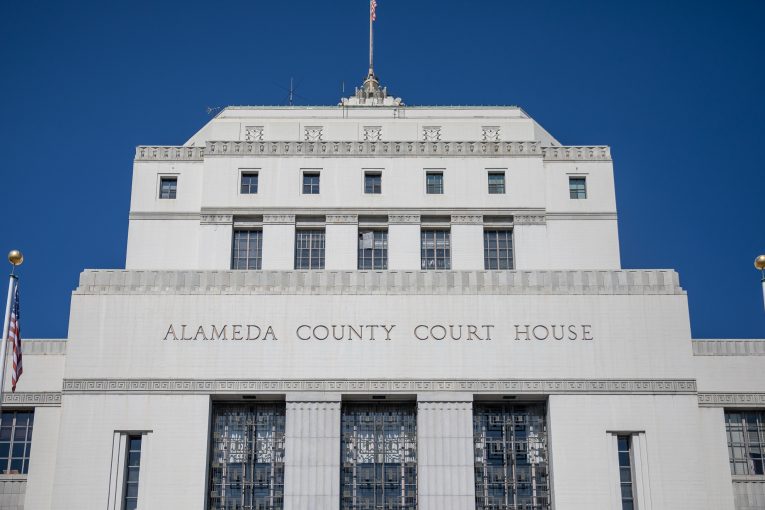
OAKLAND, CA — A man convicted of a voluntary felony murder charge was summoned here this week at an Alameda County Superior Courtroom for mandatory resentencing prompted by a recent change in California law aimed at reducing additional sentencing resulting from prior convictions that enhance the term.
Deputy Public Defender Christina Marie Moore, who had petitioned for the court to impose the middle term, also requested removal of the enhancements to the accused’s term and reduction of his sentence to 11 or 12 years.
During his 10 years in prison, the defense argued the accused had engaged in sincere rehabilitation with a clear plan for re-entry, and his conduct in prison has been good with minimal violations apart from lacking performance on parole. The accused, the defense added, was deemed low risk and not a “current public danger.”
DPD Moore requested the court give great weight to the mitigating factors that would allow dismissal of the strikes from priors, emphasizing the accused’s current status did not render him as a current public danger, adding he maintained favorable behavior while in custody.
However, Judge Tom Stevens rejected the request, stating that voluntary felony manslaughter is inadequate to fulfill PC § 1385(c) in the interest of justice, and that the accused’s sentence should be harsher.
The judge noted his struggle to define “current danger,” as assessing the accused’s capacity for harm in this case is only judged from his time in prison and not from the crimes committed in the past.
“The law does not allow the court to say what happened years ago and say it is dangerous,” said Judge Stevens, taking time to establish background information for the court.
In alignment with the California Penal Code Section 667.5(b), which allowed for additional sentencing for new charges with priors, an addition of three years resulting from one-year priors was added to the accused’s sentence.
However, new legislation passed by the Senate required the court to reassess sentencing. As Judge Stevens noted, the court was legally obligated to remove a minimum of three years from the accused’s sentence no matter the situation.
After establishing background, Judge Stevens acknowledged the presence of the victim’s mother, who appeared online in the courtroom.
The victim’s mother had emailed a letter to Judge Stevens prior, explaining the effect of the murder on her and the victim’s family, and she requested careful consideration of resentencing for Judge Stevens to take into account.
Judge Stevens was sympathetic towards the victim’s family, stating the court must take into account the nature and circumstances of the tragic and senseless event, but he also stated that he needed to “separate what the law requires and make an objective decision.”
To come to a decision, Judge Stevens had to assess crucial factors of the accused’s behavior in prison, attempts at rehabilitation, path to education, and whether the accused was a current public danger.
Looking at the facts of the case, Judge Stevens noted the accused had a record of serious felonies spanning across his lifetime, with the murder charge the most recent, in 2008.
Given the nature of this case, Judge Stevens admitted that it was “difficult to judge,” because the law “is not a science.” Considering the required evaluation of the accused’s stable trajectory in prison, while also taking into account the gravity of his history, Judge Stevens claimed to aim for a modest resentencing.
Deputy District Attorney Kwixuan Hart Maloof had no objections to the resentencing, and made no statements to prevent the court from proceeding.
Judge Stevens said the accused’s stability and good behavior in prison along with the mandatory requirements of law cannot be ignored in resentencing, but he would still keep in mind the entirety of the situation.
Accepting the middle term proposed by the defense as well, he required the sentence is double pursuant to that law, doubling a six-year term for a total of 12 years and an additional five-year enhancement imposed by CA Penal Code § 667(a).
Ultimately, Judge Stevens resentenced the accused to a total of 17 years, determinant of the accused’s recent history, acknowledgment of the law, and aim for equitable resentencing.